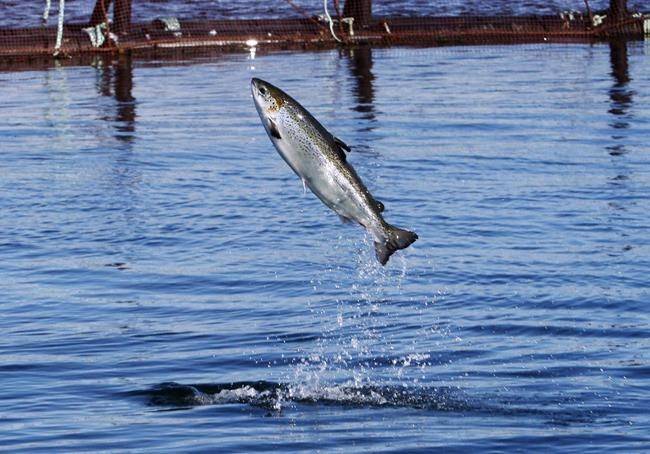 Salmon farms up and down the B.C. coast will need formal declarations from the Department of Fisheries and Oceans that they don’t harm wild salmon, starting in four years.
Salmon farms up and down the B.C. coast will need formal declarations from the Department of Fisheries and Oceans that they don’t harm wild salmon, starting in four years.
They are unlikely to get them.
It’s hard to picture a battered federal bureaucracy that’s been reviled in B.C. for years issuing such a definitive pronouncement on such a complex, hot-button issue. But the new B.C. regime for approving open-net farms requires exactly such a declaration before the farms can get the provincial approval they need to continue operating.
So the fate of the entire industry is on the table starting now in the four-year run-up to the new system.
The other piece of the new puzzle — the requirement for First Nations approval where farms operate in their territories — is equally complex (discussed here).
The assertion that B.C. will require from the DFO is vaguely implicit in the current approval system. The department regulates and approves the farms in dozens of different ways. They add up to an inferred judgment that the operations don’t harm wild fish.
But stating that plainly is a whole different matter. Governments have a hard time saying anything unambiguously. Government scientists and technicians have an even tougher time. And when it comes to wild and farmed fish, little is crystal clear to anyone.
The most recent summary of the never-ending argument came five months ago, in a provincial aquaculture advisory report.
More than a dozen stakeholders spent months digging into the issues. The report is more than 200 pages long and the main takeaway was how divergent the views are. They agree wild salmon are important, but that’s about it when it comes to consensus.
“There is no agreement among council members about the level of risk to wild salmon stocks from net-pen salmon farming … not surprising given the range of perspectives that were brought to our table.”
The group said there is no “simple yes or no answer” to the question. But that’s exactly what Agriculture Minister Lana Popham is demanding from the DFO.
Any declaration either way would leave Ottawa open to legal actions from nearly anyone. Farms that don’t get the OK could file suit just as easily as anti-farm activists could, any time a wild salmon turns up sick or dead near a farm.
The federal response to the new approach Popham announced this week was muted. There are whispers that Ottawa is less than enchanted with the new pressure B.C. is putting on the department.
It comes on top of a visit Premier John Horgan’s top staff paid to Ottawa recently to talk salmon policy and ask for more funding. Given the pipeline argument, it wasn’t the best time to put a new ask on the table.
The other thing that works against the DFO declaring farms safe to wild fish is a tough audit released two months ago.
The federal auditor general commissioned a study that failed the DFO and Food Inspection Agency across the board on their handling of salmon farms.
Not enough progress on disease risk assessments. Assessment of fish health was out of date. Inadequate analysis of the farms’ drug and pesticide impacts on wild fish.
It concluded that DFO “did not adequately manage the risks associated with salmon aquaculture consistent with its mandate to protect wild fish.”
So an agency that has just been told to smarten up and get a lot tougher on the impacts that farms might have on wild stock will be asked by 2022 to issue blanket guarantees that the farms don’t hurt wild fish.
Unlikely.
The more emphasis put on the precautionary principle — erring on the side of caution — the less likely it is that open-net farming will be approved.
The First Nations veto will be the major hurdle for farms in the Broughton Archipelago, where current Indigenous leaders are defiantly opposed.
The need for a federal guarantee that the farms don’t harm wild stocks will put the rest of the industry elsewhere on the coast under the gun as well.
Popham is en route to not only achieving her goal of curtailing open-net farms, but shifting responsibility for the consequences elsewhere.



